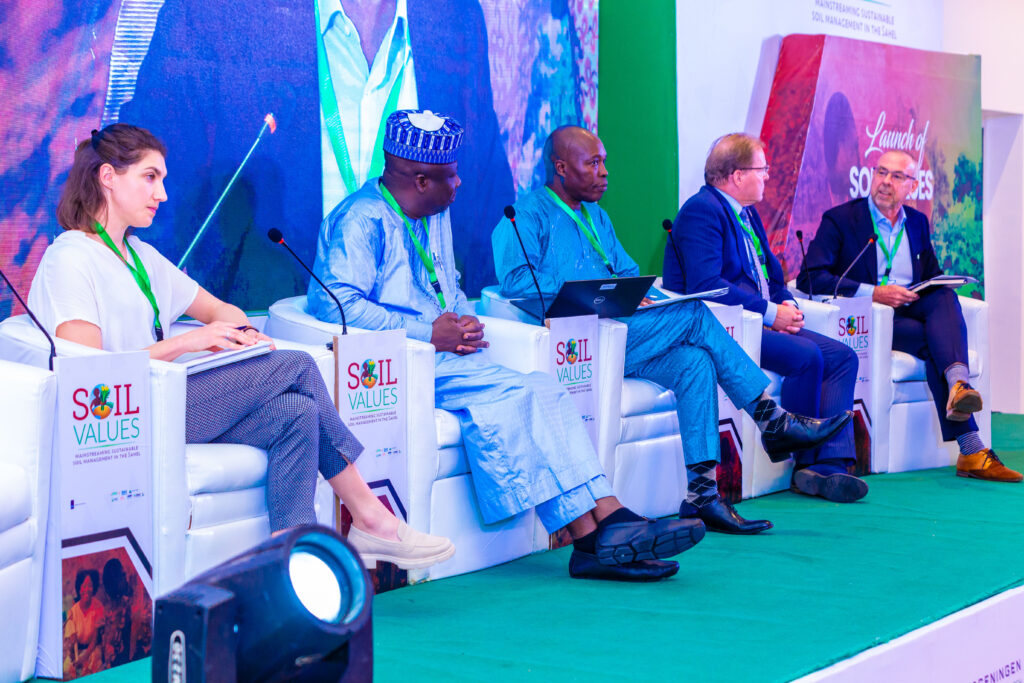
The Soil Values program is proud to announce the publication of its first newsletter to present the exciting actions and results of the program for everyone interested in agricultural development and soil management in Sahelian countries.
This first issue covers a number of events, including the official launch of Soil Values in Nigeria, the program’s national launches in implementing countries, the first staff retreat in Togo, the Fertilizer and Soil Health Summit in Kenya, and the International Fertilizer Development Center (IFDC) Open Doors in West Africa.
The newsletter also highlights the Soil Values program’s contribution to the promotion of trees for soil improvement through Arbor Day in Burkina Faso, for which Soil Values received an award from the Ministry of the Environment and where its team members engaged in exchanges with national partners to create synergies.
Soil Values aims to sustainably manage soil fertility and health in the Sahelian region, notably in Burkina Faso, Mali, Niger, and northern Nigeria, along with strategic countries such as Ghana and Côte d’Ivoire.
Funded by the Dutch Directorate-General for International Cooperation (DGIS), the Soil Values program aims to improve the productivity of 2 million hectares of farmland in the Sahel, while strengthening the resilience and well-being of 1.5 million farmers, with a particular focus on women and young people.
The program’s approach is based on integrated soil fertility management (ISFM) and participatory watershed and landscape management to promote the adoption of soil fertility-friendly farming practices by small-scale farmers.
Read the newsletter below and subscribe for more updates from IFDC and its programs.
The newsletter is also available in French.
Funded by the Directorate-General for International Cooperation (DGIS), the Soil Values program is being implemented over 10 years (2024-2034) by the International Fertilizer Development Center (IFDC), in consortium with SNV and Wageningen University and Research (WUR) and in collaboration with knowledge partners, such as AGRA, the Center for International Forestry Research and World Agroforestry (CIFOR-ICRAF), the International Institute of Tropical Agriculture (IITA), ISRIC – World Soil Information, and the International Water Management Institute (IWMI).




